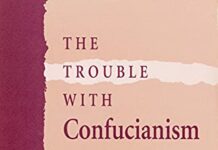
Ebook Info
- Published: 2002
- Number of pages: 552 pages
- Format: PDF
- File Size: 2.17 MB
- Authors: Wm. Theodore De Bary
Description
Sources of Japanese Tradition is a best-selling classic, unrivaled for its wide selection of source readings on history, society, politics, education, philosophy, and religion in the Land of the Rising Sun. In this long-awaited second edition, the editors have revised or retranslated most of the texts in the original 1958 edition, and added a great many selections not included or translated before. They have also restructured volume 1 to span the period from the early Japanese chronicles to the end of the sixteenth century. New additions include:* readings on early and medieval Shinto and on the tea ceremony,* readings on state Buddhism and Chinese political thought influential in Japan, and * sections on women’s education, medieval innovations in the uses of history, and laws and precepts of the medieval warrior houses. Together, the selections shed light on the development of Japanese civilization in its own terms, without reference to Western parallels, and will continue to assist generations of students and lay readers in understanding Japanese culture.
User’s Reviews
Editorial Reviews: Review The long awaited second edition, with new contributions reflecting who’s who in the field, adds new readings and revisions for a more balanced perspecitve… Sources lives again as a useful introduction that “lets the Japanese speak for themselves.” ― Religious Studies ReviewI am a fan of Volume One of Sources of Japanese Tradition… The daunting task of revisiting such a classic was skillfully handled by the editors. ― Japanese Journal of Religious Studies About the Author Wm. Theodore de Bary (1919–2017) was John Mitchell Mason Professor Emeritus and provost emeritus of Columbia University. His many books include Waiting for the Dawn, Message of the Mind, and Learning for One’s Self, as well as Sources of Japanese Tradition and Sources of Korean Tradition, all published by Columbia University Press. Carol Gluck is the George Sansom Professor of History at Columbia University. She is the author of Japan’s Modern Myths: Ideology in the Late Meiji Period. Arthur Tiedemann is a member of the Society of Senior Scholars at the Heyman Centre for the Humanities, Columbia University. He is the author of Modern Japan: A Brief History.
Reviews from Amazon users which were colected at the time this book was published on the website:
⭐AFTER READING THIS, OR BEFORE….IF YOU HAVEN’T – YOU MIGHT ALSO LIKE TO READ JAMES CLAVELL’S “SHOGUN” EPIC. IT HELPS TO HAVE INSIGHT INTO WHERE THE JAPANESE HEADED IN WORLD WAR II, AND SINCE THEN. A GEOGRAPHICALLY RESTRICTED GROUP OF ISLANDS WITH LITTLE RESOURCES, ALWAYS LOOKING FOR MORE …MORE LAND, MORE RESOURCES, MORE POWER…….VERY EDUCATIONAL TO KNOW ABOUT JAPAN AND HOW, AFTER LOSING WORLD WAR II, THEY VOWED TO MAKE THEIR WAY IN BUSINESS AS A “PERSONAL WAR CHALLENGE.”THEY STARTED WITH TEXTILES (CHEAP LABOR AND GOODS) AND THEN WENT INTO TRANSISTORS, FROM THERE INTO TVS AND OTHER THINGS AND – OH, YES, CARS – FROM WHICH WE LEARNED THAT CARS COULD LAST AND LAST, NOT HAVE TO PREDICTABLY RUST OUT AS DETROIT KNEW ABOUT AND PLANNED.JAPAN THEN WENT ON TO BECOME THE COMPUTER EXPERTS OF THE WORLD. NINTENDO HAPPENED….AND A FEW GENERATIONS OF CHILDREN WERE THRILLED WITH THE OPPORTUNITIES FOR A TINY LITTLE POCKET-SIZED GAMEBOY WHICH DEVELOPED IN A FEW SHORT YEARS, INTO OTHER AND OTHER AND OTHER INCREDIBLE THINGS.AT THIS POINT, IT MATTERS A WHOLE LOT TO READ A BOOK LIKE THIS1NM
⭐As a history nerd I have read plenty of dry books, but this is not one of them. The authors do a wonderful job of giving a small summary of what the chapter will contain, and another summary before each individual source material. Even many of their foot notes are interesting and greatly help you through the source material. Sure some of the sources are a little dry themselves, but that can’t be helped, that’s just how they wrote at the time. And in spite of that, I still enjoy reading it because of their historical significance. An overall interesting, informative and well put together book worthy of anyones time with an interest in Japanese History.
⭐I find this book very readable (and I’m reading it for pleasure/interest). It would probably be helpful to read this after or while reading a general Japanese history, though.However, for a western reader, the unfamiliar place names do make it a bit of a memory exercise.Perhaps that exercise is a good thing. And in any case, I do enjoy searching on the internet for such things. But often I just want to read uninterruptedly, without piling up notes of things to check.So on balance I think it would be a major help, at minor cost, to add perhaps a half-dozen pages of maps from various eras. Japan, Korea, nearby China.
⭐I love Japanese history, especially ancient history. This book contains a lot of background information, some I knew, a lot I didn’t. If you like older Japanese history, this is a most have.
⭐When I got the book, it was already written on
⭐Fascinating compilation of readings from early Japan, right from the (translated) source.
⭐Book is in excellent condition!
⭐Bought as a gift.
Keywords
Free Download Sources of Japanese Tradition, Volume One: From Earliest Times to 1600 2nd Edition in PDF format
Sources of Japanese Tradition, Volume One: From Earliest Times to 1600 2nd Edition PDF Free Download
Download Sources of Japanese Tradition, Volume One: From Earliest Times to 1600 2nd Edition 2002 PDF Free
Sources of Japanese Tradition, Volume One: From Earliest Times to 1600 2nd Edition 2002 PDF Free Download
Download Sources of Japanese Tradition, Volume One: From Earliest Times to 1600 2nd Edition PDF
Free Download Ebook Sources of Japanese Tradition, Volume One: From Earliest Times to 1600 2nd Edition

